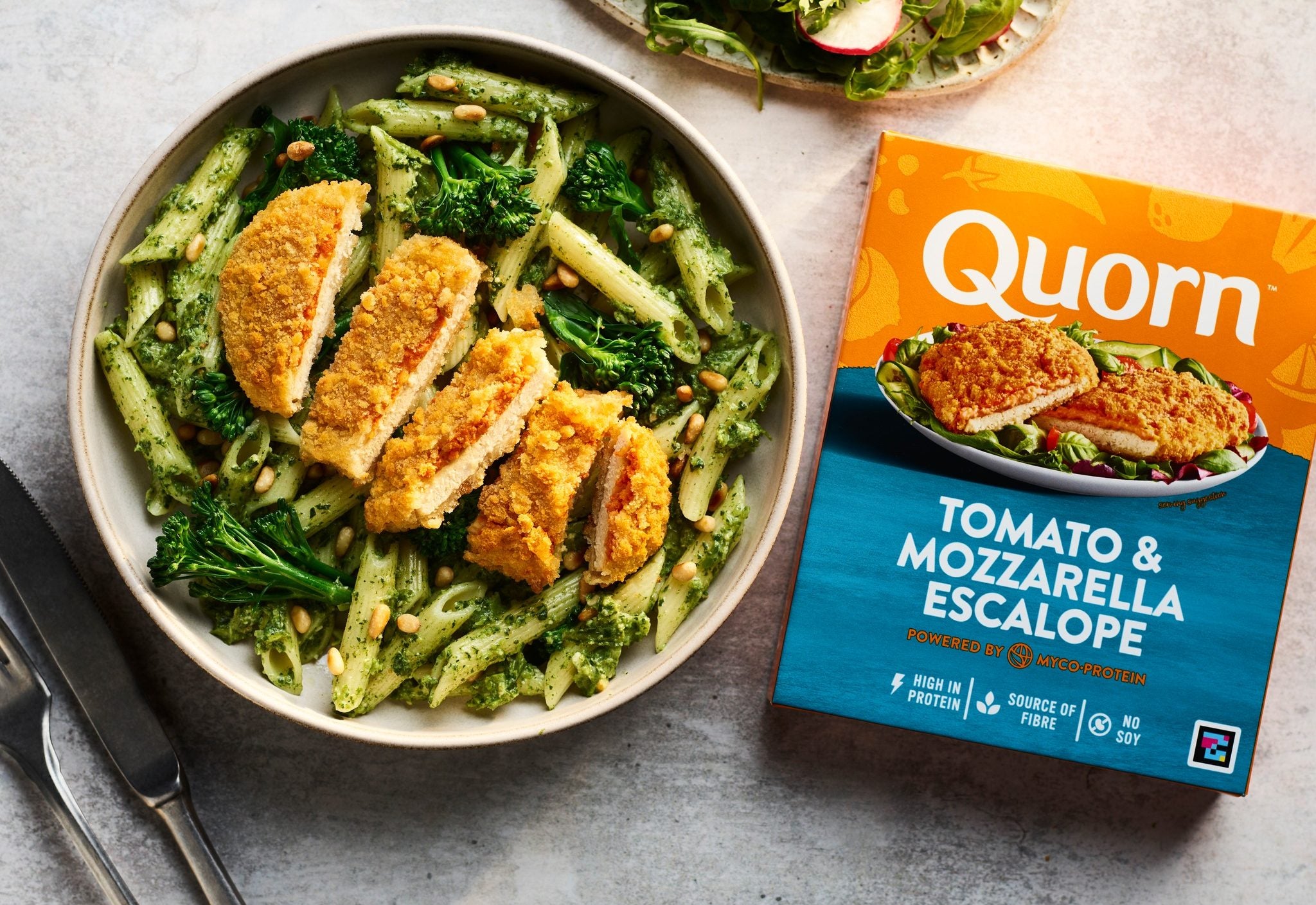
Monde Nissin has flagged a fourth straight quarterly decline in meat-free sales as the Quorn brand owner continues to face challenges in the category.
The Philippines-headquartered business said its sales of meat-alternatives are likely to be down by a single-digit rate in the final three-month period of 2023.
Issuing preliminary results yesterday (22 January) for the quarter to 31 December and ahead of the final release in April, Monde Nissin, which acquired UK-based Quorn Foods in 2015, said its “meat-alternative business continues to navigate in a challenging environment”.
It added that “while the UK retail market has remained weak and continues to affect the top-line, we anticipate being at least EBITDA neutral in the fourth quarter”.
Publicly-listed Monde Nissin made the announcement on the same day Heather Mills, the UK entrepreneur who founded the vegan business VBites in 1993, revealed she had bought the company’s assets out of administration.
VBites entered the process in December, rounding out a year that saw the demise of plant-based peers The Meatless Farm Co., Plant & Bean and LoveSeitan, all in the UK. Further afield in Canada, The Very Good Food Company disappeared in 2023, while Tattooed Chef in the US filed for bankruptcy in July last year.
Access the most comprehensive Company Profiles
on the market, powered by GlobalData. Save hours of research. Gain competitive edge.

Company Profile – free
sample
Your download email will arrive shortly
We are confident about the
unique
quality of our Company Profiles. However, we want you to make the most
beneficial
decision for your business, so we offer a free sample that you can download by
submitting the below form
By GlobalData
While Monde Nissin’s performance outside of the meat-free category is set to be more robust, the company said a yearly impairment assessment is still being carried out.
An impairment equivalent to more than $350m was booked in the 2022 fiscal year related to Quorn in the UK, with one of the factors cited as the “rationalisation of the trend” in meat-free. When CEO Henry Soesanto announced the annual results last April, he pointed to “some reduction in sentiment toward the meat-alternative category”.
Monde Nissin then called on the company’s family shareholders in November to commit “risk” financing as a buffer.
In yesterday’s statement of results, the business said: “The annual impairment test (IAS 36) in our meat-alternative business is ongoing; however, we also believe the family’s financial support will largely cover any potential impairment at the parent level.”
When Monde Nissin published its third-quarter and nine-month results in November, it said financing would be provided via the family umbrella company MNSG Holdings in Singapore and would be aimed at “reducing impairments (if any) recognisable” for the meat-free business over the next ten years, starting in December 2023.
At the same time, meat-free sales were down 4.2% in reported terms for the third quarter at 3.6bn pesos ($64m today), taking a decline in year-to-date sales to 4.7% to rest at 10.7bn pesos.
Prior to that, sales were down 3.7% and 6.2%, in the previous two quarters, respectively.
In the fourth quarter of fiscal 2022, reported sales were up 1.3% at 4.2bn pesos and 1% for the year as a whole at 15.4bn pesos.
Elsewhere in yesterday’s numbers, Monde Nissin said its main business segment – the Asia Pacific Branded Food and Beverage (APAC BFB) unit – was likely to post “strong” sales growth on a quarterly and annual basis.
That would be aided by “robust growth in noodles and beverages”, accompanied by a 5% increase in volumes for the year and 2% for the final quarter.
Group sales are expected to grow high single-digits with net income up in the mid-teens percentage range. Gross margin expansion, however, is likely to be offset by a decline in the alternative-proteins margin.

